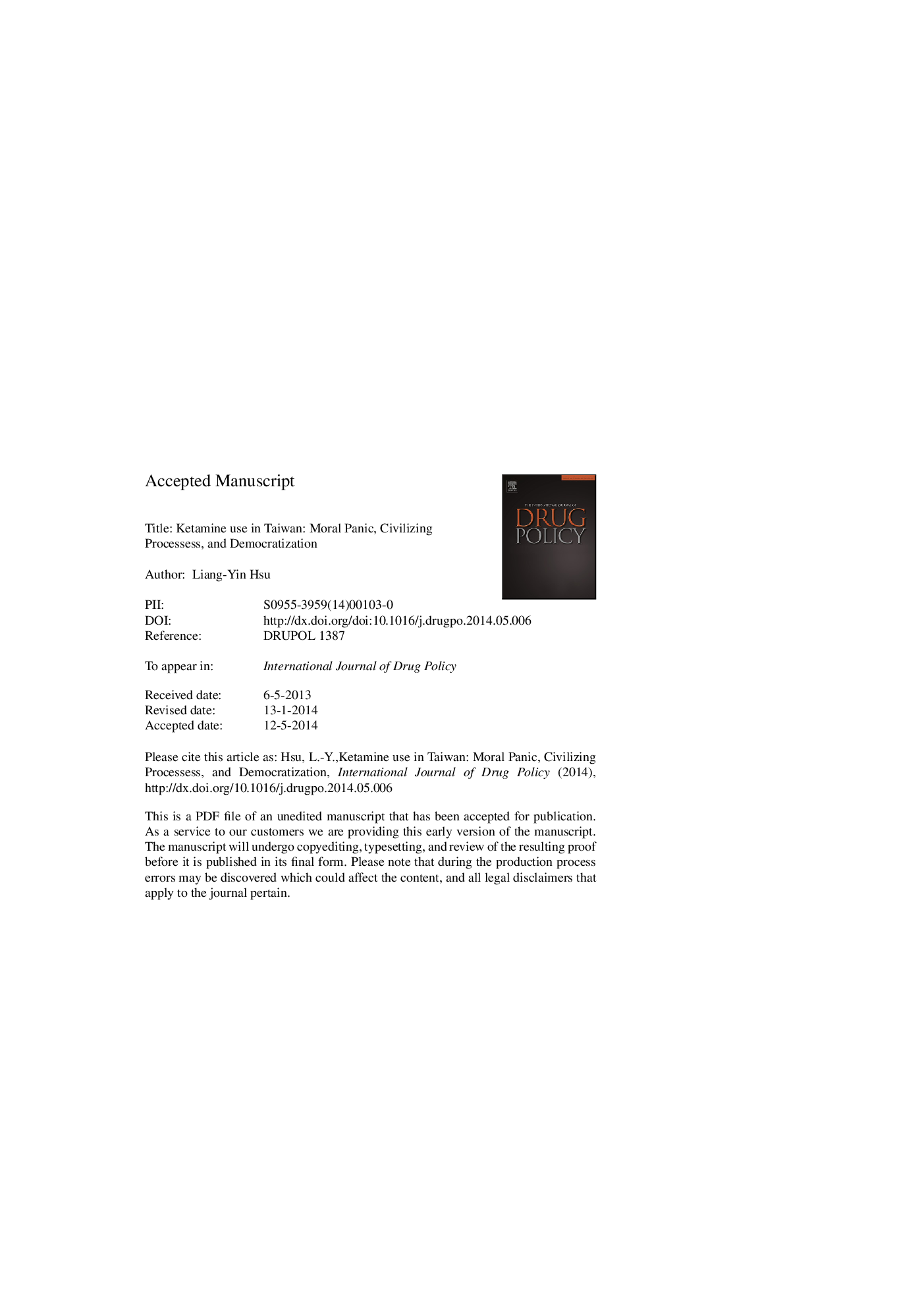| Article ID | Journal | Published Year | Pages | File Type |
|---|---|---|---|---|
| 7514047 | International Journal of Drug Policy | 2014 | 11 Pages |
Abstract
Ketamine use among young people in Taiwan has increased in recent years. Believing ketamine users to be a threat to social order and harsh punishment to be a deterrent, some legislators have called for upgrading ketamine use to a more serious criminal offence. These calls have been repeatedly rebuffed by the advisory council which sets drug policy, suggesting that the perceived problem does not correlate to the actual one. In this commentary, I argue that the calls of legislators constitute a 'moral panic,' and follow Rohloff (2011) in connecting the phenomenon to Elias' (2000) concept of civilizing and decivilizing processes. In addition, I demonstrate that moral panic - in the ketamine case at least - is shaped by the legacy of authoritarianism.
Related Topics
Health Sciences
Medicine and Dentistry
Psychiatry and Mental Health
Authors
Liang-Yin Hsu,
